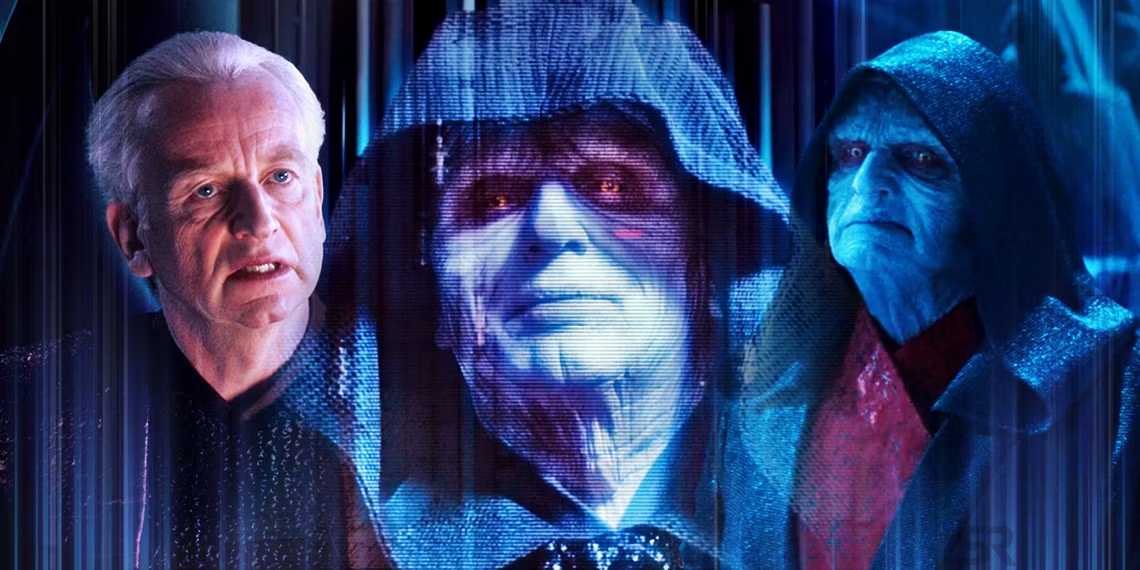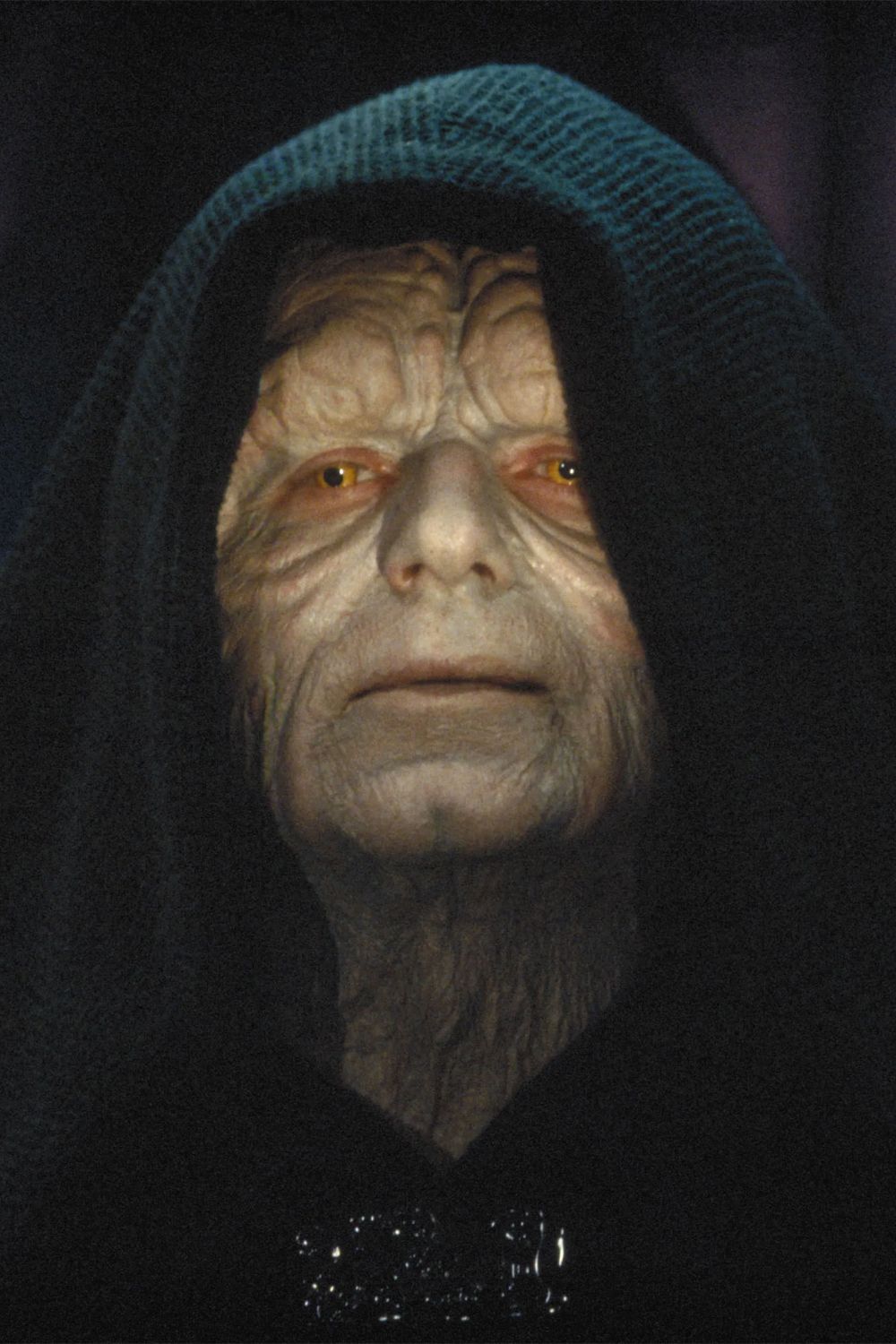Summary
- The Empire’s defeat at Endor didn’t signal its end – remnants persisted under various leaders in the shadows.
- Palpatine was more than just a Sith; he was a cunning politician who created an Empire of loyal followers even after his death.
- The New Republic’s inability to be honest about the truth of the Empire led to its ultimate return as the First Order.
Although the Battle of Endor in Return of the Jedi saw the defeat of the Emperor and the destruction of the second Death Star, it was absolutely not the end of the Empire in the Star Wars timeline. Lasting for 24 years by the time of the Emperor’s first death, the reign of the Empire is probably the central story of this universe. Characters are defined and changed by either fighting for or against, or even around, the Empire.
But recently, the complete history of the Galactic Empire has recently been fully accounted for in a new book from Star Wars. The Rise and Fall of the Galactic Empire is written by Dr Chris Kempshall, a real life historian, and it can absolutely be felt in the book, which is written from an in-universe point of view. With this new retrospective on the Empire in hand, it’s time to acknowledge that Return of the Jedi was absolutely not the end for the Empire.
Purchase Dr Chris Kempshall’s The Rise and Fall of the Galactic Empire Here
Related
Every Major Star Wars Event Between Empire Strikes Back & Return Of The Jedi
Star Wars’ Galactic Civil War continued to rage between The Empire Strikes Back and Return of the Jedi with several significant events.
9 Too Many Imperial Leaders Believed They Could Occupy The Power Vacuum
Remnant Warlords And Zealots
Full of powerful military leaders, it absolutely makes sense that the Empire couldn’t be defeated in just one battle. This led to the proliferation of Imperial warlords among the remaining Imperial forces, leading their own smaller sections of the Empire following Endor. This is mostly due to the collapse of central power structures in the Empire tying them together.
Inherently evil and selfish, Imperial leaders took their own areas of space and became independent combatants against the New Republic. The war against the New Republic officially ended at the Battle of Jakku, but this didn’t stop the warlords. They persisted, albeit on a smaller scale, as seen in The Mandalorian with Moff Gideon and the Imperial Shadow Council, a loose alliance of Imperial remnant leaders working to maintain the Empire in the shadows.
8 The Rebel Alliance Broadcasts Unwittingly Played Into Xenophobic Fears
Imperials Were Motivated Because They Thought Ewoks Ate Humans
Ever since the release of Return of the Jedi, which featured celebrations at the Battle of Endor which included drums made of Imperial helmets, there has been one specific fan theory. This theory has crept its way into Star Wars stories several times in the past, and now has once more, but as possible Imperial propaganda. What exactly happened to the troopers who once wore those helmets? The Rise and Fall of the Galactic Empire says this:
Many soldiers noted the lack of Imperial prisoners at Endor and the use of empty armor as musical instruments by the Ewoks. Wild, but fearful, rumors began to spread about what exactly the ‘indigenous creatures’ on the moon had done to captured Imperials. Many of those within the Imperial military already had concerns about what might happen to them if captured, and these additional fears–stoked by an underlying and very Imperial species bias–only compounded the problem.
This means Imperials saw the lack of prisoners, and automatically assumed the worst. The book doesn’t directly imply that the Ewoks ate the stormtroopers, but with their willingness to try and cook Luke and Han earlier in the movie, the logic is all there. It turns out, this type of propaganda surrounding the Battle of Endor actually pushed the already species-ist Imperials further into a rage against the New Republic, fueling their propaganda and making them see peace as less of an option with a government aligned with the Ewoks.
7 Palpatine Was Not Just A Sith, He Directed The Galaxy
A Dictator Through & Through
The Emperor was the absolute authority in the Empire. It was his domain, and his brainchild, having orchestrated the entire regime’s existence from the Battle of Naboo to the execution of Order 66 and the declaration of the Empire. Because of this, many assume that the Empire wouldn’t work without him – and they are wrong.
Palpatine needed at least some of the people of the galaxy on his side, and because he absolutely had that, through orchestrating the Clone Wars and making an enemy of the Jedi, he had a lot of them.
Palpatine was not just a Sith, the ultimate villain in charge. He was also a cunning and ruthlessly evil politician who created an Empire of people, brainwashed people that think the Empire’s control over the galaxy is a good thing. Palpatine would not have been able to maintain power as just a single Sith. Palpatine needed at least some of the people of the galaxy on his side, and because he absolutely had that, through orchestrating the Clone Wars and making an enemy of the Jedi, he had a lot of them.
5:48

Related
Star Wars: Emperor Palpatine’s 20 Best Quotes
The Star Wars franchise is unmatched for quotable lines, and some of the best are spoken by the villainous Emperor Palpatine.
6 The Empire Had Made Everyone Complicit
A Corrupt Society With Corrupt Leaders
Building off of the last point, the Empire’s existence manifested itself out of the corruption that grew in the late years of the Galactic Republic. This allowed for a seamless transition when Palpatine officially declared the Empire. Corruption was rampant and became even more common under a regime run by a Sith, those who do everything in deceptive and corrupt ways.
Palpatine made the Empire into a system where the only way to succeed was to become corrupt, play the system, and not care about others. Many Imperials knew what they were doing was bad, but kept doing it as a way to get ahead, making them desperately loyal to the Empire. These types of lifestyles are hard to break and make those who live in them willing to fight for their proliferation, as seen in Andor with Syril Karn.
5 Some Imperial Leaders Even Knew About Records Of Their Complicity
If The Rebels Won, Their Power Would Evaporate
On top of being complicit in the terrible actions of the Imperial military and government, many high-ranking Imperials knew that their actions were recorded. Lots of Imperials defected to the Rebel Alliance and later the New Republic during the war in order to fight for what is right and make up for their wrongdoings. This, however, was halted by fear for some of them, because their terrible acts were actually all kept on record by Palpatine.
Palpatine had a supercomputer built on Coruscant under the former Jedi Temple, later the Imperial Palace. This was a gigantic databank containing all the actions of every member of the Empire’s forces. This allowed him to recruit only the most loyal into his highest ranks, and into Operation Cinder, the Emperor’s contingency plan. It also, however, became a fear for many Imperials, as if the New Republic found this databank, they would know of all of their terrible crimes.
4 Palpatine Had Orders Issued For The Event Of His Defeat
The Emperor Had Plenty Of Contingency Plans
As mentioned above, Palpatine’s death was absolutely not the end for the Empire. In fact, it even led to the proliferation of the Empire through the events of Operation Cinder. Using the Empire’s database on Imperial activity, droids bearing the face of Palpatine selected the most loyal members of the military to be briefed on the contingency following the Emperors death. The campaign that followed was a bloody one. As written in The Rise and Fall of the Galactic Empire:
In some way–and it remains unclear as to how–the moment of Palpatine’s death set in motion a series of events that would lead to the deaths of millions. Possibly billions.
Palpatine saw an Empire that wasn’t strong enough to protect him as one that didn’t deserve to survive, and he wanted to make sure of that with Operation Cinder. Imperial leaders were instructed to fire on civilians and sometimes even each other in order to cause pure chaos. This kind of chaos was meant to thin the Empire itself down, while making sure its ideology lasted in the form of the First Order, as the events of Operation Cinder led directly to the creation of the Shadow Council and the First Order’s origins.
3 Imperial Friendly People Populated The New Republic
Even After The Empire’s Defeat, Its Citizens Remained
After the war officially ended at Jakku, chancellor Mon Mothma made a concerted effort to maintain peace with the Imperial remnant. A large part of that effort was reconciliation opportunities for normal citizens of the Empire. This can be seen rather clearly in the New Republic Amnesty Program in The Mandalorian, which showed both possible outcomes of the program with Elia Kane and Penn Pershing. Kane maintains her Imperial loyalties, working in the shadows, while Pershing is actually happy to serve the New Republic.
Furthermore, they also harbored ongoing concerns as to the number of ex-Imperials who still retained political offices in the aftermath of the war.
This quote from The Rise and Fall of the Galactic Empire summarizes another part of the problem here. Many ex-Imperials maintained their offices in the New Republic, as re-establishing an entire galactic government from the ground up without them would be possible. Together, these issues intertwined to maintain some serious Imperial ideology far into the life of the New Republic, eventually becoming the political basis for the Empire’s spiritual successor.

Related
Star Wars: New Republic Timeline Explained
The New Republic Era is a brief period of galactic history, but it’s vitally important to Star Wars. Here are all the key galactic events!
2 The New Republic Failed To Maintain Security Because Of Mon Mothma’s Legitimate Fears
Demilitarization Across The Galaxy
Around the time of the Battle of Jakku, the New Republic began its efforts to demilitarize. Chancellor Mon Mothma saw that the war was ending, and wanted the former Rebel Alliance military reduced to only 10% of its size in order to not only maintain peace, but preemptively prevent a second emperor arising. Mothma feared a repetition of the events of the Clone Wars, which began through military buildup, and reduced the New Republic’s military – but this had some lasting consequences. The Rise and Fall of the Galactic Empire details:
…with the implementation of her planned Military Disarmament Act. This was probably the most controversial policy that Mon Mothma forced through. Her reasoning was that violence and centralized armed forces had long ruled and ruined the galaxy. That a large standing military would always produce the circumstances for further conflict.
While having noble intentions, the New Republic was just a bit naive in demilitarizing so fast. Out of fear of the horrors of war, they unintentionally made it so that war would eventually return to the galaxy in the form of the First Order. The Outer Rim was less patrolled, and many roles were fulfilled by droids. Mon Mothma had a good idea, but executed it incorrectly, allowing for the Empire to continue to exist in the seediest parts of the galaxy.
1 The New Republic Wasn’t Honest About The Empire
The Truest Evil Is Ignorance
The most surprising point that The Rise and Fall of the Galactic Empire makes is at its very ending, the point of the entire work in-universe. The author, Beaumont Kin, wants to make sure that no future generation will suffer like his and the one prior did, and is trying to combat that through education – because the real way that the Empire’s power lasted long past Return of the Jedi is that its true nature was not known. It may have seemed defeated, but a military victory is not an ideological victory.
A military victory is not an ideological victory.
The New Republic didn’t properly educate itself on the origins of the Empire, and how it slowly rose through complacency. This led to the Empire’s ideology never truly dying, but simply changing into the First Order. The Empire’s ideology was once again defeated at the Battle of Exegol, but The Rise and Fall of the Galactic Empire makes it clear that the Empire can persist simply through ignorance of the public, much like fascism in the real world. With The Rise and Fall of the Galactic Empire, Star Wars and Dr Kempshall once again remind people to always stay vigilant.
